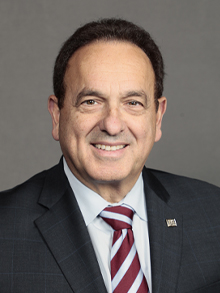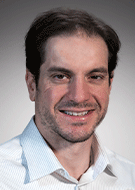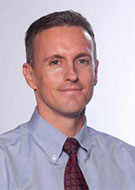RSNA Assembles Task Force Volunteers to Tackle COVID-19 Pandemic
Groups will work on focused projects to provide needed resources for radiologists



RSNA is committed to providing trusted resources to our members as they prepare for and manage patient surges caused by the spread of COVID-19. As we continue to share the latest research through RSNA journals, RSNA established two volunteer task forces to develop additional needed tools.
“In these unusual times, it is more important than ever that the radiology community work together,” said Bruce G. Haffty, MD, RSNA Chairman of the Board. “In order to quickly develop the resources most needed by our members and health care professionals around the world, the Board gathered leaders with the particular expertise and experience to help our colleagues manage this crisis.”
The RSNA COVID-19 Task Force, chaired by Mahmud Mossa-Basha, MD, University of Washington Medical Center, has been working in recent weeks to identify and prioritize the needs of our members related to the outbreak. Task force members include: Javad R. Azadi, MD, Johns Hopkins Medicine, Christopher G. Filippi, MD, North Shore LIJ Health System, Maryellen L. Giger, PhD, University of Chicago, Jeffrey S. Klein, MD, University of Vermont (RSNA Board member), Jane Ko, MD, New York University Langone Health, Brian S. Kuszyk, MD, Eastern Radiologists, Carolyn C. Meltzer, MD, Emory University (RSNA Board liaison), Christine O. (Cooky) Menias, MD, Mayo Clinic, Arizona, Richard E. Sharpe, Jr, MD, Kaiser Permanente, Denver, Bien Soo Tan, MD, Singapore General Hospital, and Erik M. Velez, MD, University of Southern California.The task force is charged with leading RSNA’s overall efforts in educating radiologists and health care professionals about the impact of COVID-19.
“The goal of the RSNA COVID-19 task force is to provide tools to radiologists that will equip them to manage the COVID-19 outbreak,” Dr. Mossa-Basha said. “These resources will include recommendations on departmental policies and patient surge preparation in addition to educational resources and radiology reporting tools.”
Resources can be accessed at the new COVID-19 Resources page added to the RSNA website. New content will be added regularly and a weekly email will highlight the most recent additions.
A second group, the RSNA AI COVID-19 Task Force, chaired by Matthew P. Lungren, MD, Stanford University, works in collaboration with the National Institutes of Health to implement a repository of COVID-19 imaging data. The open data repository will compile images and correlative data from institutions, practices and societies around the world to create a comprehensive source for COVID-19 research and education efforts.
“The COVID-19 pandemic is extracting a heavy toll across the globe and on the front lines,” Dr. Lungren said. “Clinicians face this crisis with very little knowledge and experience to draw from, so our best hope is to find opportunities to leverage our world-wide clinical and scientific communities to curate and make available the best data we can to the largest communities possible.”
Task force members include Errol Colak, MD, Unity Health Toronto, Bradley J. Erickson, MD, PhD, Mayo Clinic, Rochester, MN, Maryellen L. Giger, PhD, University of Chicago, Jayashree Kalpathy-Cramer, PhD, Massachusetts General Hospital, Jeffrey P. Kanne, MD, University of Wisconsin, Madison, Felipe Kitamura, MD, UNIFESP, Sao Paulo, Curtis P. Langlotz, MD, PhD, Stanford University (RSNA Board liaison), Linda Moy, MD, New York University Langone Health, George L. Shih, MD, Weill Cornell Medical Center, and Carol C. Wu, MD, University of Texas MD Anderson Cancer Center.
The RSNA AI COVID-19 Task Force announced the COVID-19 Imaging Data Repository in late March and released a survey to identify institutions interested in sharing data. More than 120 institutions around the world have already responded to the survey, which is open until April 15.
“In the face of unprecedented clinical events, and along with partners around the world, the repository will set the stage for expanded access to medical imaging datasets for future use cases, knocking down a critical bottleneck in data access for the research and educational communities worldwide,” Dr. Lungren added.